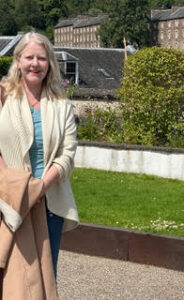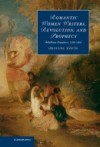
Areas of Interest: British Romanticism
Contact Information
Email: osmith@umbc.edu
Office: PAHB 433
Office Number: 410-455-2138
Education
Ph.D. in English, Loyola University Chicago
B.A. in English, Bennington College
Biography
Since joining UMBC in 2005, Dr. Smith has worked in close collaboration with campus stakeholders across the university in multiple leadership roles to create transformational policies, programs, and resources. She has served as Chair of English (2012-2018); Chair of the Research Council (2010); Chair of the Faculty Affairs Committee (2015-2017); Graduate Program Director (2018-2024); Vice President of the Faculty Senate (2019); Faculty Senate President (2020-2022); and Special Assistant to the Provost for Special Faculty Initiatives (2020-2024).
Dr. Smith is a committed teacher who sees the classroom as a collaborative, inclusive space in which she and her students engage with literary texts on a deeper level, where they exchange ideas about what these texts meant in their own time to their authors and contemporaries, and what they mean to us now.
Books

Romantic Women Writers, Revolution, and Prophecy: Rebellious Daughters, 1786-1826
Cambridge University Press, 2013 (paperback 2015)
Convinced of the end of the world, many Romantic women writers assumed the role of the female prophet. Smith argues that their prophecies were performative acts in which the prophet believed herself to be authorized by God to bring about social or religious transformation through her words. They not only thought in millenarian terms but did so in a way that significantly alters our current critical view of the relations between gender, genre, and literary authority in this period.